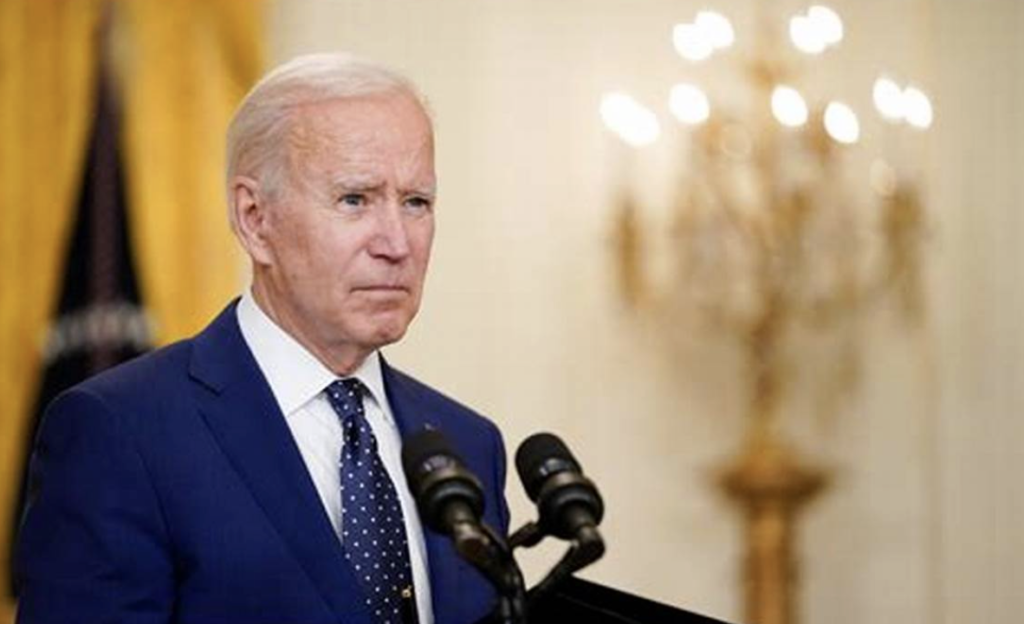
BIDEN ADMINISTRATION TAKES STEPS TO BOLSTER PATIENT PRIVACY RIGHTS IN RESPONSE TO ABORTION BANS
BACKGROUND ON THE ABORTION PILL RULING AND ITS IMPACT ON WOMEN’S HEALTH
Following the Supreme Court’s decision on the abortion pill, Biden has pledged to defend women’s health against political attacks. The decision, which limits access to abortion and states’ ability to regulate it, may encounter opposition in the Supreme Court.
In case Roe v. Wade is repealed, pro-abortion organisations are rushing to inform patients and healthcare professionals about medication abortion. Due to the FDA’s certification requirements for mifepristone distributors, the need to store the tablets, the controversy surrounding abortion, and the danger of being targeted by anti-abortion protestors, primary care doctors are hesitant to perform medication abortion as a result of the verdict.

The Hyde Amendment prohibits the use of government funds for abortions by federally certified health facilities, putting doctors who desire to perform medication abortions in danger of harassment and other negative consequences. In an effort to ensure that women have access to safe and legal abortion services, Biden promised to defend women’s health from political attacks.
BIDEN’S RESPONSE TO THE RULING AND HIS VOW TO PROTECT WOMEN’S HEALTH
To support reproductive health rights, President Biden has promised to issue executive orders on abortion, including making it simpler to get abortion drugs, safeguarding patient privacy, and ensuring that more people can afford the operation. Legal experts claim he has limited power to prevent states from outlawing abortion, though. Although it is still improbable, Biden has stated his support for creating a filibuster exception for abortion.
While Biden can’t do much on his own to defend abortion rights nationwide, he does have some options for making abortion somewhat more accessible, such offering it on government properties. However, legislation would be necessary to codify abortion rights into federal law, and the president cannot do that by an executive order. Despite these restrictions, proponents of abortion have encouraged the Biden administration to take a comprehensive approach to advising on
COVID-1 and how women can receive abortion treatment.

ANALYSIS OF THE POLITICAL IMPLICATIONS OF BIDEN’S VOW
The conservative legal movement has long sought to restrict access to abortion and the authority of
administrative bodies, so the recent abortion pill verdict may encounter resistance in the Supreme Court.
If upheld, the decision renders the FDA’s clearance of the abortion medicine mifepristone, which is used
in more than half of pregnancies, invalid and would make it impossible for people to obtain the pills. The
decision might potentially require the FDA to change how medical abortions are performed.
The FDA’s certification requirements for mifepristone distributors, the need to store the pills, the controversy surrounding abortion, and the possibility of being targeted by anti-abortion activists make many primary care doctors hesitant to provide medication abortions, despite the fact that they are technically allowed to do so.
The Hyde Amendment also forbids the use of federal funds for abortion by federally registered
health facilities, putting medical professionals who seek to offer medication abortion at risk of harassment and other negative consequences. These issues show that the Biden administration must act to support reproductive health rights, including making it simpler to access abortion drugs, safeguarding patient privacy, and ensuring that more individuals can afford the operation.
REACTIONS FROM WOMEN’S HEALTH ADVOCATES AND ORGANIZATIONS
The Biden administration has been urged by pro-choice activists to enact stricter HIPAA (Health
Insurance Portability and Accountability Act) protections for people seeking abortion care. Although
some states have passed legislation requiring healthcare providers to report certain information about
patients who get abortion care, HIPAA is a federal statute that protects the privacy of patients’ medical
information. These regulations put patients at risk of harassment and assault as well as preventing them
from getting medical attention.
To guarantee that patients’ privacy is respected and that they can get
abortion care without fear of retaliation, proponents of abortion rights contend that the Biden
administration should offer stricter HIPAA protections. Although the Biden administration has few
options to protect access to abortion in states that are determined to outlaw it, one step it can take to
support reproductive health rights is to issue stronger HIPAA protections.

SUMMARY
Limiting access to abortion and limiting the authority of administrative agencies have long been the two
main objectives of the conservative legal movement. The FDA’s approval of the abortion drug
mifepristone, which is used in more than half of pregnancy terminations, was recently ruled invalid by a
federal judge in Texas.
If the decision is upheld, it will not only prevent people from getting the pills but
also force the FDA to change the protocol for performing medical abortions. In case Roe v. Wade is
overturned, abortion-rights advocates are rushing to inform patients and healthcare professionals about
medication abortion, and more doctors are beginning to provide medication abortion pills via
telemedicine to increase access to abortion treatment.
President Biden’s administration can take steps to support reproductive health rights, such as making it simpler to obtain abortion medication, protecting patient privacy, and ensuring that more people can afford the procedure, even though he has limited options to protect abortion access in states that are determined to restrict it.







